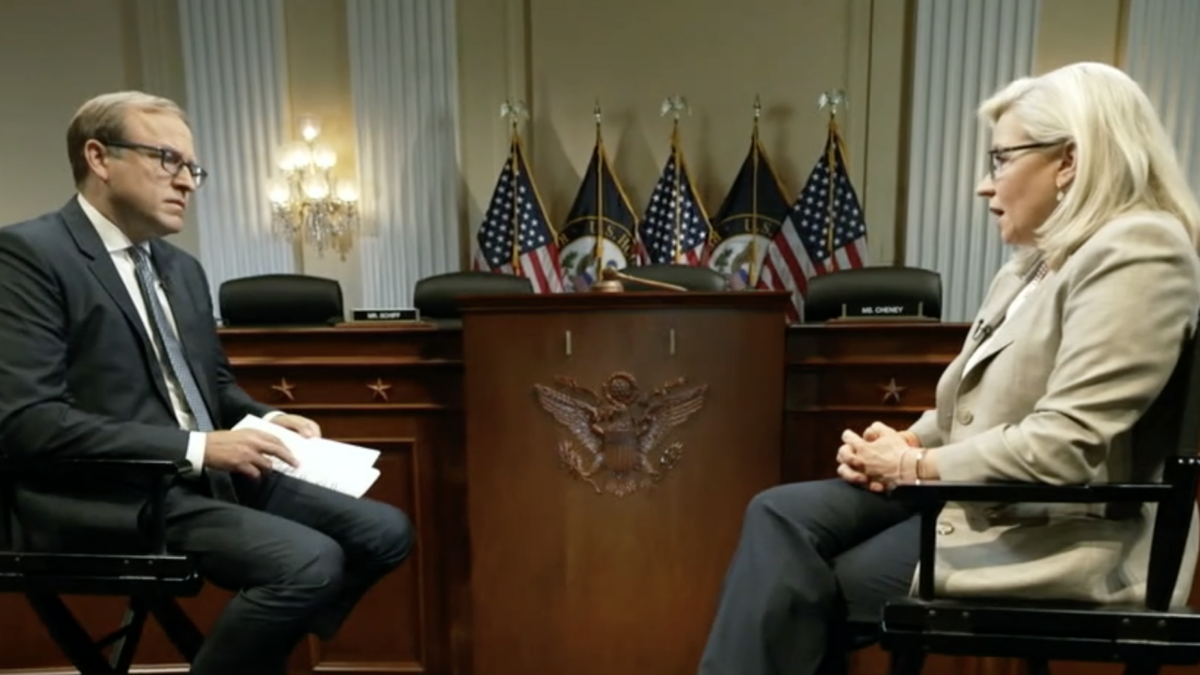Tacking the word “denier” onto an issue — as in “climate denier” or “election denier”— is one of the dumbest rhetorical devices in modern politics. The purpose, of course, is to insinuate that the underlying position is insidious, beyond the pale, on par with Holocaust denial. One might debate a “conservative” on the issues, but a “denier;” well, that’s someone who can’t be reasoned with.
For starters, the logical and grammatical problem with the “denier” formulation is that nobody actually denies the existence of elections or climate. A “climate denier” is often a person who believes in economic tradeoffs and rejects eco-scaremongering. And an “election denier” is typically someone who believes that a political contest has been stolen, or corrupted, or unfairly implemented. This is the position of Donald Trump and Joe Biden, Doug Mastriano and Stacey Abrams, and Dinesh D’Souza and Jonathan Chait.
Certainly, not all “election denialism” is identical. There are those who maintain Donald Trump was a Russian asset since the 1980s and others who believe that the Electoral College is an antiquated institution. Both positions are wrong, but one is a critique of federalism while the other is bonkers. But the left likes to lump together nuts who believe child-porn rings are operating out of DC pizzerias and the millions who have concerns about the prevalence of low-integrity, mail-in ballot systems or executive actions that allow late, undated ballots to be counted after Election Day.
If these latter concerns make one a “denier,” then surely someone who believes that asking a citizen to show an ID before voting is tantamount to Jim Crow is also one. Because, if it’s not “dark money” stealing “democracy,” it’s confusing ballots, or “voter suppression,” or “gerrymandering,” or the Ruskies or the Supreme Court, or the Constitution. It has long been the case that Democrats do not accept the legitimacy of elections.
This weekend, Dem operative Jon Karl interviewed the recently deposed Liz Cheney, who promised to work against “election deniers,” people who do not “respect the outcome of the election.” Among the people Cheney will reject are Ron DeSantis and Ted Cruz—neither of whom, as far as I can tell, deny that Biden is the legitimate president of the United States. Apparently, that isn’t enough anymore.
“Who won the 2020 election?” CNN’s Jim Acosta asked Donald Trump’s acting Department of Homeland Security Secretary Chad Wolf this weekend.
“Obviously Joe Biden is president,” Wolf responded.
“No, no,” Acosta said. “Do you believe he won that election fair and square?”
“Joe Biden is president,” Wolf again said before bringing up the possibility of fraud.
Do Democrats believe Trump won 2016 squarely and fairly? Do they believe that Georgia or Texas run “fair and square” elections? Doubtful. Yet, it is only conservatives who are asked to treat every election law passed by Democrats as a sacrosanct pillar of “democracy” or risk being smeared as a traitor.
CNN’s preening Jake Tapper also loves to throw around the phrase “election denier,” which he defines as anyone “who lies about American democracy in the 2020 election.” Why doesn’t this go for the 2016 election or 2024 election or 2000? Well, because Tapper spent years spreading the Russia “collusion” fraud, a concerted effort to delegitimize “American democracy.” If we accept Tapper’s parameter’s for any other election year, not only does he meet the definition of a denialist, but virtually every Democrat qualifies.
It goes for Hillary Clinton, who repeatedly declared Trump an “illegitimate president,” and claimed that 2016 was “not on the level” and “stolen,” is by the definition Democrats embrace an “election denier.” As are Joe Biden, Kamala Harris, John Kerry, Al Gore, the late John Lewis, the late Harry Reid, Paul Krugman, Jerrold Nadler, virtually the entire Washington Post editorial page, Time magazine, every other major media outlet, the White House Press secretary Karine Jean-Pierre, former DNC chairs, and scores of others.
When asked this weekend why 74 percent of Americans believe the country is headed in the wrong direction, NBC’s Washington Correspondent Yamiche Alcindor responded that people are “very worried about former President Trump coming back into power, or former President Trump or another Republican stealing the election in 2022 or 2024.”
Not only is this astoundingly silly, but it’s also an example of the kind of preemptive election “denialism” that was employed by Nancy Pelosi and Adam Schiff, and many others, during the run-up to 2020. “Let the election decide,” was a dangerous idea according to Pelosi during Trump’s first impeachment because the legitimacy of 2020 had already been undermined. “The President’s misconduct cannot be decided at the ballot box, for we cannot be assured that the vote will be fairly won,” Schiff said.
When the Washington Post warns us that “Election deniers march toward power in key 2024 battlegrounds” it isn’t talking about Stacey Abrams or Josh Shapiro, it is laying the groundwork for challenging the legitimacy of the next election.
And voters should be able to question the legitimacy of elections if they believe laws have been unjust or cheating has occurred. Even if you contend, as I do, that most election fraud claims are overstated or partisan wish-casting, it is a function of “democracy” to bring your grievances to the political arena. But, it seems, the only ones tagged as “deniers”—and all the big outlets liberally use the term now—are Republicans. Which is just another reason half the country distrusts journalists– a vacuum in trust that doesn’t only propel skepticism, but gives space for more conspiracies to flourish.









